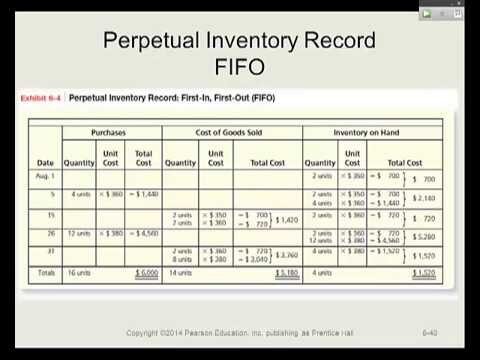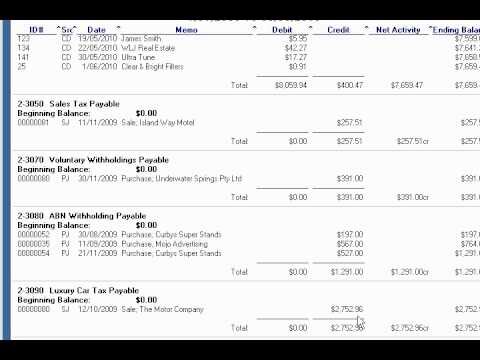Content

Usually, new companies use this method to record revenue and expenses when a payment is made. However, sometimes, the IRS requires you to use accrual accounting if you sell a product or have inventory. With the accrual method, you document your income and expenses when they are billed instead of when you actually receive the money. Pick an experienced accountant who can break down complex information and explain it in a way you understand. It’s also important to choose an accountant with good communication skills and a personality you’re comfortable with. An accountant will never promise you a huge refund or say they can deduct several of your expenses before they’ve fully examined your finances. Ethical considerations are very important when you are vetting an accountant.
As a small business owner, negotiation should already be part of your skill-set. An interview can be a powerful way to see how well you’re likely to be able to work with a person. And a series of interviews will not only help you better define the type of accountant you need, but also gain you valuable free advice.
When you’re just starting your business or you’re getting into the weeds of running it, you’ll need to know a little bit about accounting. small business owner needs to hire an accountant… But there are a few warning signs that you need one. Some accountants use the old brokerage model, which is when they earn a commission based on the investments you buy. Take extra caution with this payment model, because some accountants may push you to buy expensive investments when smaller ones are offered, just so they can get a bigger payout.
Where Can You Find A Good Accountant?
This is possible when the accountant has opted for cloud services. Before you choose an accountant, you’ll want to ask what software they recommend for their small business customers. You may find some accountants who are using the same old desktop accounting software. They do not want to switch to the latest online accounting solutions. You want to invest in an accounting software system that you can grow into in 3-5 years. You also want an accountant who can teach you how to use your software and set up your initial chart of accounts. You should also inquire about whether they could help you get a discount on your accounting software.

This may even help you determine your own business requirements more clearly. As with anything else in life, don’t automatically accept the first offer you receive. Arrange things in such a way that you can compare a selection of accountants with each other. Then it will be easier to determine which one is best for your business. So try to find an accountant who’s using the same software as you.
“Obviously you should find an accountant who knows what they’re doing,” Thompson told business.com. “But it makes a world of difference when you find one who is personable.” If your accountant is giving you a bad vibe, trust your gut and move on. You are essentially giving a stranger access to all of your personal information, and you have the right to, at the very least, feel comfortable with them.
When you find a candidate you like and you’ve negotiated a fee agreeable to both parties, you need to have a contract prepared that both you and the accountant will sign. You may already have a lawyer who handles these details for new employees already. But be clear with the start date and any other factors that are important to you, as you’ll want to get this off to a good start. Do up a one pager that includes the educational requirements and work experience you expect from those applying. Include the salary and (if this is a full-time position) benefits. You can also simply put out a notice to all your FaceBook, Twitter or LinkedIn colleagues that you’re looking for an accountant. Before you do a full-blown hunt through social media or posting on sites such as indeed.com, start by asking colleagues in your field for a referral.
Finding The Right Business Accountant For Your Small Business
Chartered accountants tend to do commercial work within corporations, rather than doing public practice work for other entities. You can also check out the Accounting & Financial Women’s Alliance if you’d prefer to work with a female accountant. Recognize problems (such as disappearing inventory, increased costs for products or equipment, or customers who aren’t paying on time) before they have a chance to bring down your business. Learn how to choose an accountant who has the skills your business needs. So, it’s better not to choose someone who is not much of a team player and keeps to themselves. Look for an accountant who will respond to your phone calls and emails on a timely basis.
Given the level of fees you are prepared to pay, you must decide where your responsibility stops and where the accountant’s begins. Accountants help you keep an eye on major costs as early as the startup stage, a time when you’re probably preoccupied with counting every paper clip and postage stamp. Contact your state’s board of accountancy to check the status of a CPA’s license or to find out if any disciplinary action has ever been taken against the accountant. You can ask the IRS Office of Professional Responsibility if an EA has ever been censured or subjected to other disciplinary action. You might also want to check with your local chamber of commerce.
- Before going through your questions, tell them a little about yourself and your business.
- Being able to generate the standard business reports and statements required by businesses and the IRS.
- Investment advisory services are provided by Wealthfront Advisors , an SEC-registered investment adviser, and brokerage products and services, are provided by Wealthfront Brokerage LLC, member FINRA / SIPC.
- As with a CPA, a CMA must pass an exam, have business experience, and obtain continuing education credits.
- Accountants can handle every aspect of bookkeeping and small business accounting.
- Pick an experienced accountant who can break down complex information and explain it in a way you understand.
Attorneys are best at complex legal matters such as preparing estate tax returns or taking your case before the U.S. Tax attorneys are lawyers who specialize in tax law, and they’re licensed by state courts and state bar associations. They often have master of law degrees in taxation, in addition to the required juris doctor degrees. CPAs have passed the rigorous Uniform CPA Examination and they’re licensed by the board of accountancy in the state where they work. They have accounting degrees from a university or college, and continuing licensing requirements involve meeting certain character and experience thresholds. Enrolled agents often specialize in certain tax areas, and they’re best for dealing with complex tax situations. They can represent you before the IRS if you’re faced with an audit or collection actions.
Marketing Strategies For Accounting Firms
There’s nothing like a face-to-face meeting for gauging how well you might work with another person. Besides assessing the accountant’s knowledge, see how comfortable you are with him or her and how well the two of you communicate with each other. When you choose an accountant for your business you’re going to be establishing a long term relationship, so feeling comfortable with them is important. 5) Meet with the prospective accountant you’ve chosen, and ask your questions. If your business is internet related, you’ll want to find out if the accountant is familiar withecommerce.
It’s in your company’s best interests to have an experienced, capable person handling one of the most important areas of your business – your finances. So here are some things you should consider when you’re choosing an accountant. It is important for you to know how often you will get financial statements from your accountant. Frequent communication is vital between you and your accountant, especially when you are growing your business.

Just as you would not hire an employee without an interview and a careful analysis of their resume, practice due diligence in your choice of accountant. Do a background check on the accounting firm and ask for client references, Cordano said. Look them up online to see if there are any regulatory complaints or marks on their record. Here are some questions to ask and places to look when choosing a good accountant for your small business.
There’s no reason why they can’t use more than one type of accounting software for different clients. The chances are they’ll have been in business for many years and may have become used to one particular brand of software.

Use this first contact information to choose two or three accountants to interview. Susan Ward wrote about small businesses for The Balance Small Business for 18 years. She has run an IT consulting firm and designed and presented courses on how to promote small businesses. If you plan on hiring a staff accountant, you should know the median salary is $70,500 per year ($33.89 an hour), according to the U.S. An accounting clerk must have at least a high school diploma and on-the-job training. A CPA must have an accounting degree and additional certifications. A recognized and reliable source where you can look for an accountant is the American Institute of Certified Public Accountants , which has a license verification directory of CPAs.
How To Start A Home Accounting Business
Even if you have good accounting software, it can be complicated and confusing to manage your business’s finances when you don’t have a background in business accounting. Just sifting through payroll and bookkeeping processes can be overwhelming, said John Cordano, ChFC, CLU and financial advisor with California Financial Advisors. Managing your company’s finances can be difficult if you aren’t familiar with debits, credits and recording transactions, but who says you have to go it alone? An accountant can provide the financial expertise and guidance you need to run your business effectively. For every business owner, it is vital to have someone who can give timely, accurate, and beneficial advice throughout the life of your Company, from inception to succession.

